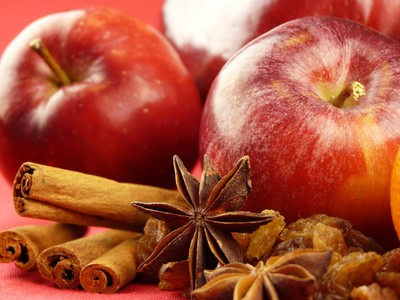 We all know the importance of a balanced diet and try very hard to be good (most days anyway!) so it adds to the occasion to indulge yourself a little at Christmas.
We all know the importance of a balanced diet and try very hard to be good (most days anyway!) so it adds to the occasion to indulge yourself a little at Christmas.
Despite best intentions, the indulgence gradually accumulates; starting with Christmas parties, canapés and quick present handover lunches with your friends, reaching its peak on Christmas day.
However, after a day or so of goose fat enveloped golden roast potatoes, syrup soaked sponge puddings and continued exposure to the Roses tin, we are all feeling the effects of these goodies and are seriously considering a drastic detox diet.
But wait, you may not have been as naughty as you think; many people eat much more fruit and veg at Christmas then any other time of year.
If you have a peek at other people’s shopping while patiently (!) waiting in line at the supermarket, you will notice many items which are missing the rest of the year. Family packs of mixed nuts jostle for space with dried fruit, satsumas, dates and the crimbo veggie favourites – the dreaded sprouts, the not so dreaded parsnips and good old carrots. There may even be some melon for a continentally inspired starter, or Iceberg lettuce for a seventies legend. Last but not least, there is the carton of orange juice for the obligatory bucks fizz on Christmas morning.
So, with a little more effort we can all up our fruit and veg quota and assuage our consciences just enough to put off the obligatory guilt until the New Year at least. Even if you just substitute a couple of bad things, or add one extra fruit to your diet you will be reducing your risk of heart disease and cancer.
Heart Research UK has come up with the following tips to help you in this quest
- Choose from the wide variety of different colours and textures available in the fruit and veg aisle at Christmas
- Make your own cranberry and apple sauces so you can control the sugar content; cranberries are packed full of vitamins.
- Start the day with a smoothie made from exotic fruits.
- Serve vegetable crudités with dips, made by adding chopped onions, chives, or herbs to crème fraîche: a refreshing change from crisps.
- Try some dried ‘superberries’ as an alternative snack. Acai and goji berries are nutrient dense fruits that carry many health benefits.
- Don’t just stick to cheese and sausages for cocktail sticks, try pineapple pieces, satsuma segments, dates, grapes and cherry tomatoes or you could make some mini dried fruit kebabs.
- Mix red wine with orange juice or cranberry juice and add cinnamon and spices or a mulled wine sachet then heat gently. This will result in a healthier mulled wine and fill your house with a delicious Christmassy aroma.
We will definitely be trying at least one or two of these – already a big fan of the homemade mulled wine on Christmas Eve! Enjoy…

